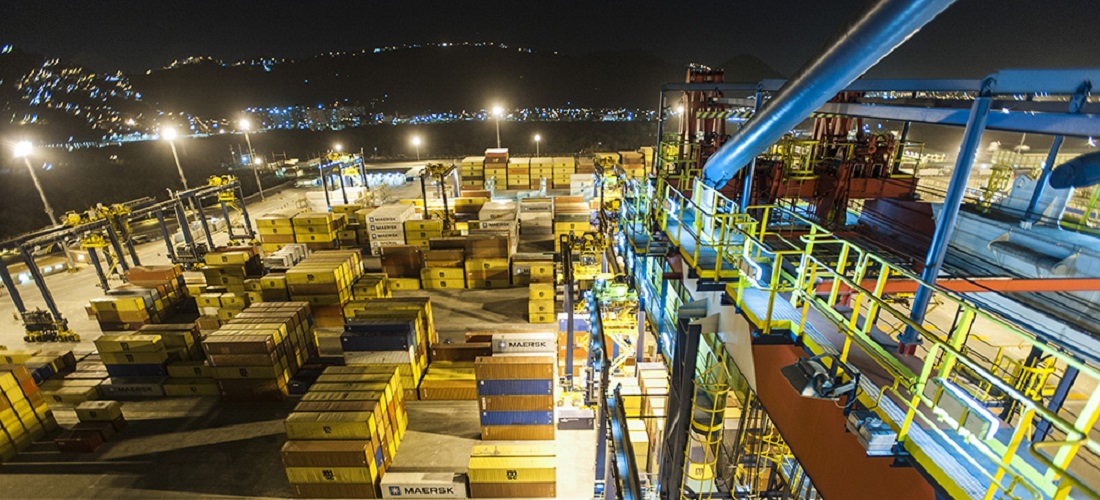
Second Covid-19 wave expected to have less impact on logistics
Mar, 08, 2021 Posted by Ruth HollardWeek 202110
According to some companies, the worsening of the pandemic brings new uncertainties to the logistics chain in the country, but the effects are expected to be much less than those seen at the height of the crisis in 2020. The perception is that the market has learned to deal with the cyclical dynamics of the crisis and that the turbulences which led to a shortage scenario in the country last year will not be repeated.
According to Brasil Terminal Portuário (BTP), there has still been no drop in import orders, which are still on the rise, says the company’s president, Ricardo Arten. As sea voyages take time, there is a certain delay in the perception of the terminals. Even so, the executive estimates that if there is a retraction, it will be transitory – a perception that did not exist a year ago, at the beginning of the crisis. “Today, we understand the pandemic as a roller coaster. With the new wave, there are uncertainties, maybe in the coming months, we will see a reduction in orders. But it is a situation that will not last. This was a learning experience we had after a year”, says the executive.
In 2020, the supply chain suffered disruptions that led to shortages in several sectors. One of the problems is that companies reduced their production and stopped renewing inventories, given the uncertainty about how demand would react.
However, there was soon a resumption in consumption, including the surge in demand for electronics, furniture, and other items linked to the new dynamic of social isolation. The companies, however, were unable to react in time to this gap between supply and demand, which led to the lack of some raw materials and products.
“People stopped spending on services and travel and started to spend on products. This trend should continue with the continuation of the pandemic”, says Luigi Ferrini, president of Hapag-Lloyd. For the time being, the company has not felt the effects of the new wave in Brazil and projects that the flow of container imports will remain steady in the coming months.
A significant difference between the current restrictions and those at the beginning of the pandemic is that the measures now have a limited period, evaluates Cesar Meireles, president of ABOL (the Brazilian association of logistic operators).“In the beginning, the isolation measures were tougher and had no end date. Even though the situation is more serious today, the restriction windows are expected to be smaller, and vaccination brings a new perspective. Therefore, I do not believe that there will be a substantial discontinuity”, says Meireles.
Another difference about the current scenario is that there is no risk of a “logistical blackout” in the country, unlike the beginning of the pandemic, when there were doubts about the continuity of the operation in ports and roads. Today, the government and companies have managed to consolidate the understanding that these are essential activities that cannot be stopped.
Even so, Prado says that in the last two weeks, he started to notice obstacles resulting from the new restrictions, mainly in the South. These are still occasional problems, but they affect the operation. For example, the impossibility of completing a delivery because the delivery person did not find the store open or even the difficulty of having lunch when on the road.
For most companies in the sector, another note of optimism and tranquility is that commodity exports continue to expand, regardless of the pandemic. BTP, for example, saw an increase of 10% in its movement last year, despite the difficulties in importation. Other groups closely linked to agribusiness, such as Hidrovias do Brasil and Rumo do not see the current aggravation of the pandemic as a concern for 2021 either.
Source: Valor Econômico
-
Nov, 13, 2023
0
Uruguay Reflects Latin American Drift From U.S., Turn to China
-
Nov, 27, 2021
0
Merchant Marine Fund completes 18 projects and provides R$1.2 bi in financial support to the naval sector in 2021
-
Shipping
Nov, 10, 2022
0
Hapag Lloyd expects to move roughly unchanged volumes in Q4
-
Blog News (ENG)
Mar, 14, 2023
0
Port of Natal loses almost 40 fruit exporters to competing state Ceará


